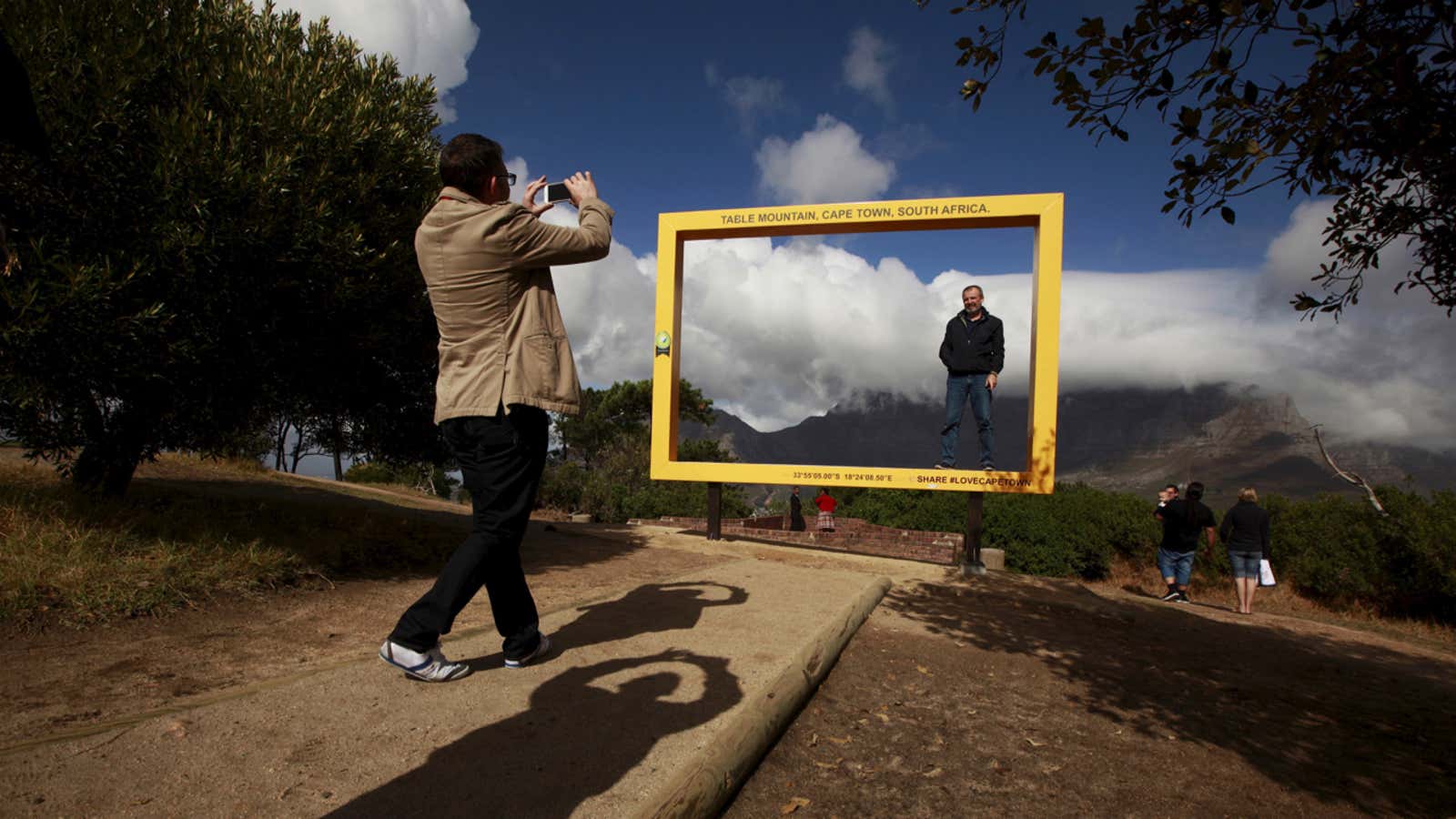Cape Town has long been Airbnb’s most popular African destination, but that lead is slipping as tourists make bolder moves to undiscovered spots on the continent.
South Africa’s “Mother City” remains the top destination for Airbnb’s more than 100,000 listings in Africa and the third most popular city in the southern hemisphere after Sydney and Melbourne. After an analysis at the end of the 2017/2018 summer season in the southern hemisphere, Airbnb noticed new African cities and countries coming on board.
The Egyptian government’s campaign to revive its struggling tourism industry seems to be paying off. Since 2011, Egypt’s political upheavals and sporadic terror attacks have scared off tourists. In the summer of 2017/2018, however, the country’s coastlines are making a comeback. The resort towns of Hurghada and El Gouna saw a 220% and 215% growth in listings.
In West Africa, Lagos and Accra are also beginning to increase their Airbnb marketshare. In the last five years of Airbnb’s presence on the continent, Nigeria lagged behind South Africa, Morocco, Kenya and Tanzania, with about 730,000 active listings according to previous reports, while Ghana was not mentioned in that report on Airbnb’s success in Africa. Today, metropolitan Accra has 708 active rentals, according to AirDNA, an Airbnb research company.
South Africa still enjoys the lion’s share of Airbnb arrivals on the continent, mostly thanks to Cape Town’s 350,000 guest arrivals each year. That’s nearly six times more than its closest local competitor Johannesburg, which saw 60,000 guest arrivals.
Morocco is the second most popular African country on Airbnb, with 22,000 listings and about 300,000 guests last year (pdf). Morocco’s efforts to impose a tax on Airbnb may dissuade the home-sharing platform from investing the way Airbnb has in Cape Town and its surrounding winelands and tourist attractions. As far as North Africa is concerned, Morocco’s perceived stagnation could leave space for further growth from more investment-hungry Egypt.
Still, even at home Cape Town is beginning to see competition from unexpected corners. One of the biggest surprises was Bloemfontein, South Africa’s usually sleepy judicial capital. The city has tripled the number of guest arrivals over the last summer period, compared to the previous year. Another unexpected competitor was Grahamstown, a small university town known for its annual art festival, growing by 155%. South Africa’s capital Pretoria also saw a 177% increase in demand.
Cape Town’s in-country losses are likely due to the drought that gripped the Western Cape region for much of last year. While Cape Town’s overall tourism numbers were up by 1%, domestic arrivals decreased by 2%, according to Cape Town Tourism.
“Speculation is that locals may have chosen to holiday elsewhere because of the water —both because they didn’t want to exacerbate the problem and because they wanted to have the full holiday experience including swimming in pools, et cetera,” said CEO of Cape Town Tourism Enver Duminy said in an emailed statement.
Correction: A previous version of this story contained a chart showing that Airbnb listings in Cape Town outperformed hotel rooms. That data was inaccurate and has since been removed.
